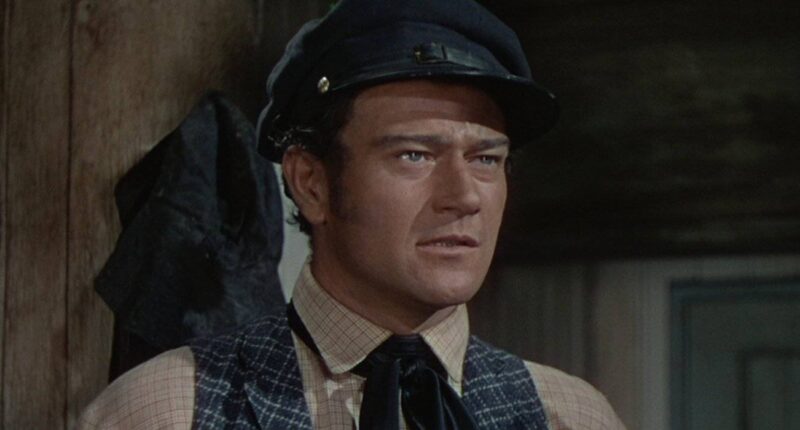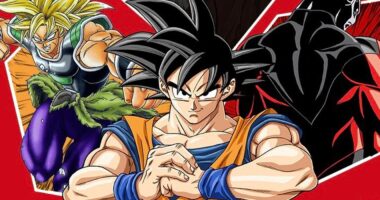Reap the Wild Wind was an innovative, Oscar-winning classic and arguably the biggest project at that point in John Wayne’s career, yet the actor was far from enthused to be working on it. In fact, “The Duke” had some serious issues with the story and the role he played in it.
After nearly a decade of forgettable B-movie Westerns, John Wayne finally got his breakout role when he starred in John Ford’s Stagecoach, which effectively paved the way for him to become one of Hollywood’s top stars and the de-facto king of the Western genre. Due in large part to his newfound fame, he was able to land one of the three main roles in Reap the Wild Wind.
Reap the Wild Wind was a 1942 sea adventure epic from Cecil B. DeMille, one of the greatest directors of Hollywood’s Golden Age. Today, the film isn’t more famous than Stagecoach, but given its phenomenal cast, budget, and the fact that it was in color, it was clearly a massive step-up in John Wayne’s ascent through the ranks of Hollywood.
Reap The Wild Wind Is One Of John Wayne’s Best 1940s Movies
A sea-faring drama mixed with action and romance, Cecil B. DeMille’s Reap the Wild Wind focused on a trio of characters who become entangled in a love triangle. John Wayne played Jack Stuart, the former captain of a wrecked ship, with Ray Milland portraying Steve Tolliver, a lawyer for a shipmaking company.
The female lead, Paulette Goddard, played the role of Loxi Claireborne, the head of a salvage operation and the source of both men’s affections. The story begins with a blossoming romance between Goddard and Wayne’s characters, after the former finds him amidst the wreckage of the ship, but it quickly becomes more complicated as Steve Tolliver enters the mix.
Mysteries and betrayals follow as Reap the Wild Wind’s winding narrative unfolds, with the two male main characters becoming hated enemies and Milland’s Steve Tolliver gradually emerging as its true hero. All three of the leads have intricately crafted character arcs, where it’s not clear where their stories are headed.
If Reap the Wild Wind sounds like a period soap opera ala Gone With the Wind, it never allows its love story to completely dominate the story, and instead tops it all off with a spectacular, underwater action sequence befitting the movie’s epic scale. For Reap the Wild Wind’s finale, Steve and Jack have to fight a giant squid, a rare sight for an early 1940s movie.
Reap the Wild Wind, which boasts a modest score of 80% score on Rotten Tomatoes, opened to critical acclaim, and received a great deal of Oscar buzz. Thanks in large part to the squid fight, it garnered the Academy Award for Best Special Effects, not to mention Oscar nominations for Best Art Direction and Best Cinematography.
John Wayne Almost Turned Down His Role In Reap The Wild Wind
Despite the prestige of being in a Cecil B. DeMille epic like Reap the Wild Wind, there were aspects of the film that failed to excite John Wayne. After watching the movie, it’s not hard to understand the actor’s reservations about the role. In the movie, Steve and Jack get into a fist fight, which Ray Milland’s character actually wins.
It should go without saying that John Wayne characters don’t typically lose fist fights, especially when they’re reasonably fair, one-on-one slugfests. Perhaps unsurprisingly, Wayne wasn’t happy about this scene, remarking to DeMille that he was being offered the Jack part just to make Ray Milland “look like a man.”
Making him less willing to take the role was John Wayne’s existing frustrations with DeMille. John Wayne really wanted to play Wild Bill Hickok in DeMille’s Western biopic of the lawman, The Plainsman. But DeMille all but admitted to Wayne personally he was passing on him due to his then-reputation as a B-movie actor, and subsequently cast Gary Cooper instead.
Still irritated about this, Wayne wrote DeMille a letter suggesting multiple revisions to the Reap the Wild Wind script, assuming this would end his candidacy for the role. But DeMille pressed Wayne to take the part anyway. Wayne remained unconvinced, as he also had concerns about the way DeMille supposedly treated his actors on-set. Wayne didn’t want to be “bawled out.“
According to Wayne’s account of the conversation as told in Maurice Zolotow’s Shooting Star: A Biography of John Wayne, DeMille insisted he was always “fair” to his actors and only yelled at those “who deserved it.” But even then, Wayne still wasn’t sold, and didn’t change his mind until DeMille changed his approach, telling him that he “needed” him to play Jack.
Wayne explained that those words from DeMille “won me over.” Thus, the way was set for John Wayne to star in Reap the Wild Wind. And while he admittedly had to take a backseat to Ray Milland, a key part in a Cecil B. DeMille movie was hardly a mistake for his career, and naturally led to greater interest in him as a leading actor in Hollywood.











